
1/ "A City is not a Tree"
This is an interesting idea in urban design.
- It was written in 1964 by mathematician/architect Christopher Alexander (CA).
- He realized natural, organic cities are more beautiful and more efficient; they are structured as complex systems.
This is an interesting idea in urban design.
- It was written in 1964 by mathematician/architect Christopher Alexander (CA).
- He realized natural, organic cities are more beautiful and more efficient; they are structured as complex systems.
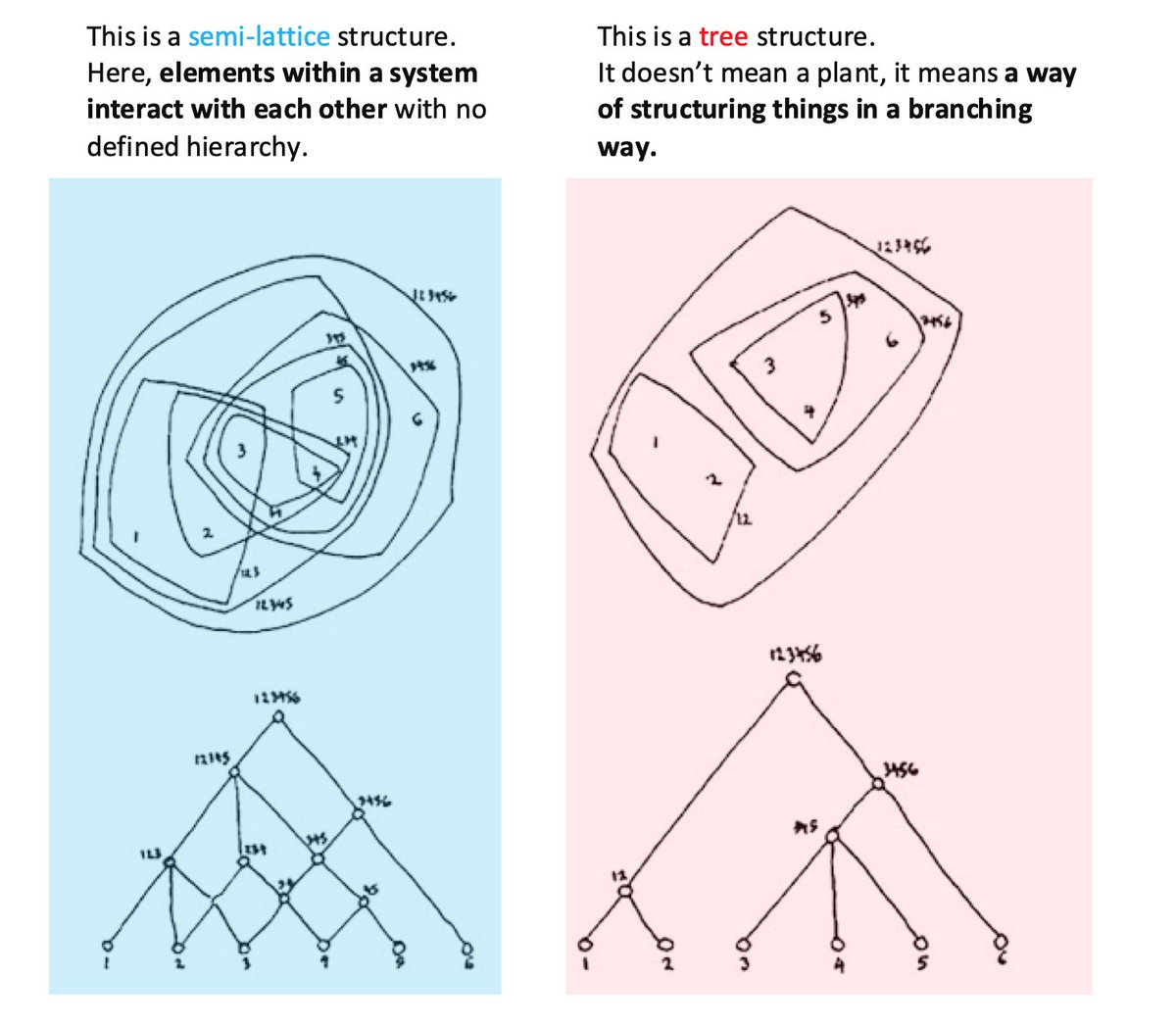
2/ Difference between natural and artificial cities
Natural cities evolve organically
Artificial cities are elaborately designed
Society and economy shape natural cities.
Urban designers plan artificial cities.
(left: natural Siena, Italy. Right: artificial British new towns)

Natural cities evolve organically
Artificial cities are elaborately designed
Society and economy shape natural cities.
Urban designers plan artificial cities.
(left: natural Siena, Italy. Right: artificial British new towns)
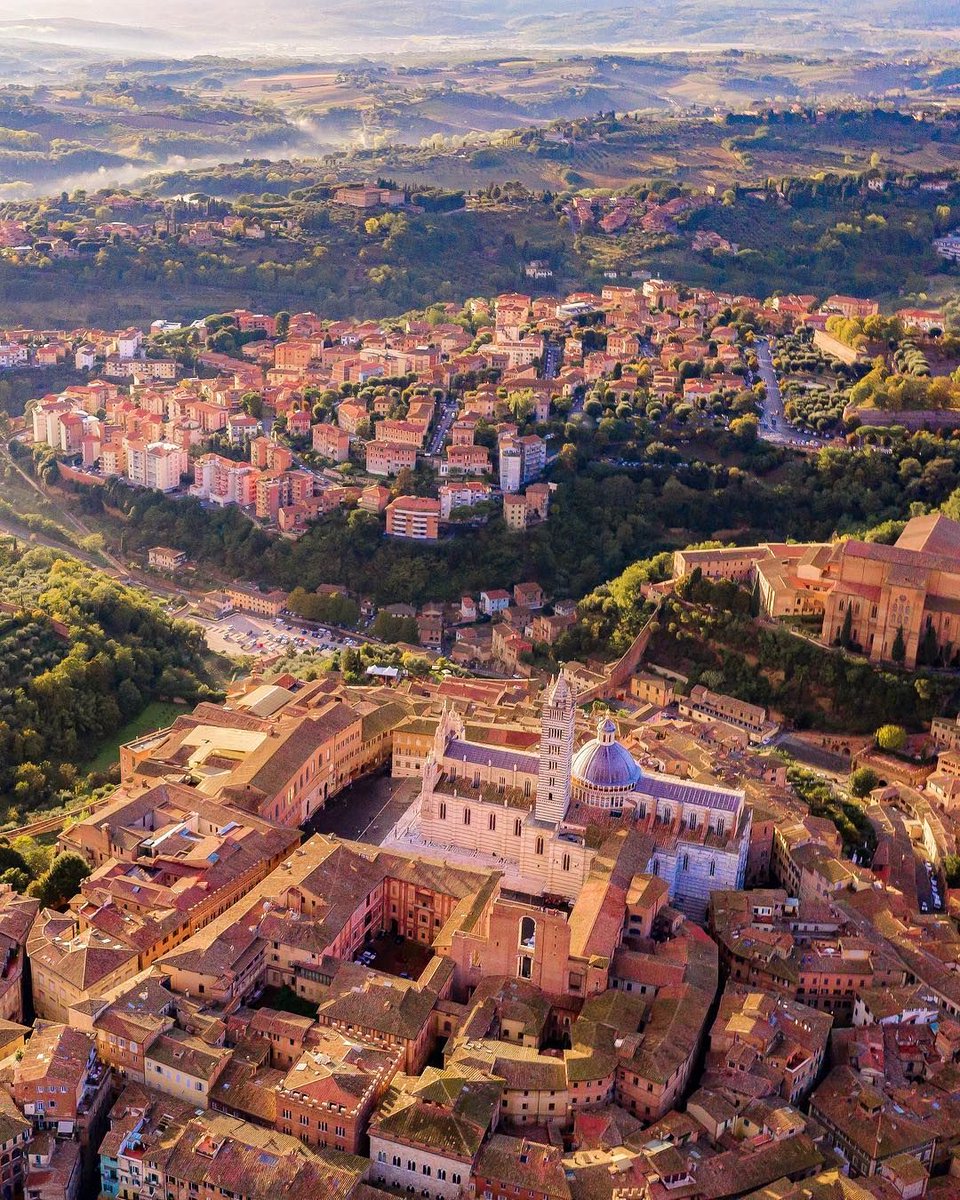
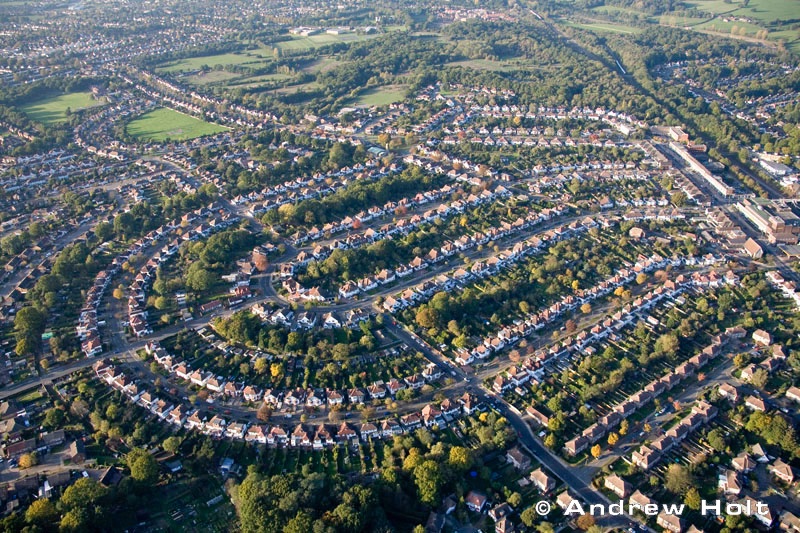
3/ Designers have tried to replicate the beautiful intricacies of ancient cities, but have failed. They tried to:
- control scale through spatial sequence of buildings
- vary richness of how buildings looked
- bring high density back into the city
It didn't work in practice.
- control scale through spatial sequence of buildings
- vary richness of how buildings looked
- bring high density back into the city
It didn't work in practice.
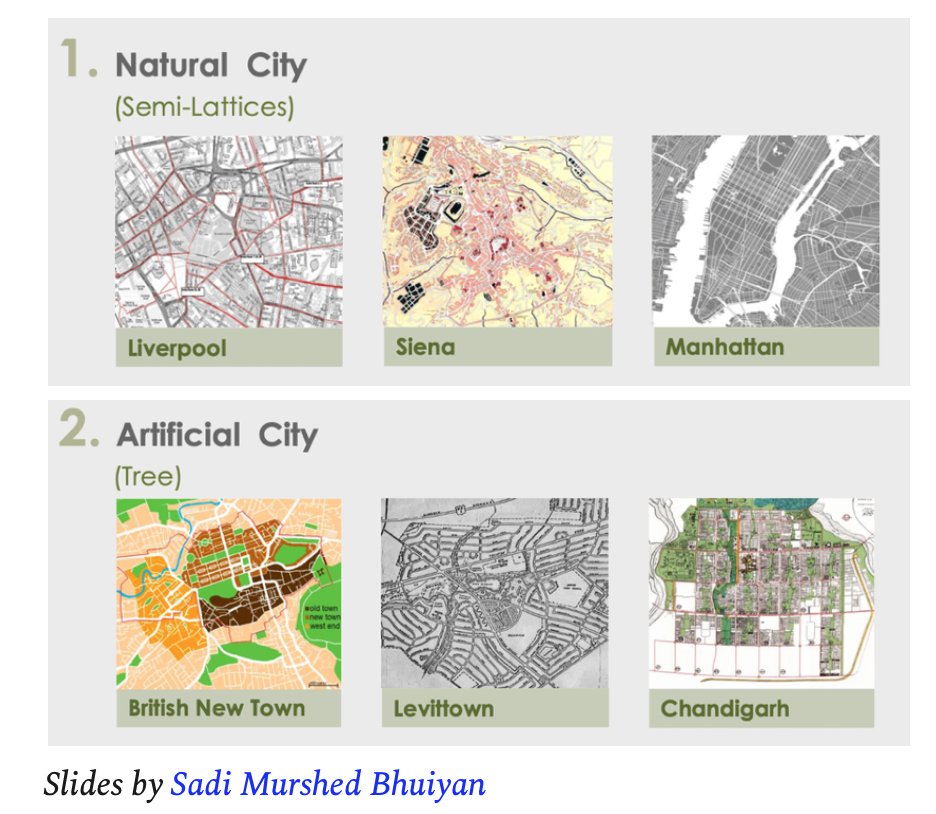
4/ Designers failed because they tried to imitate the visual, plastic properties of natural cities.
We should look at the abstract aspects to unearth the inner nature of natural cities. Aspects like structure, interactions and atmospheres.
(left: Granada, right: Chandigarh)

We should look at the abstract aspects to unearth the inner nature of natural cities. Aspects like structure, interactions and atmospheres.
(left: Granada, right: Chandigarh)
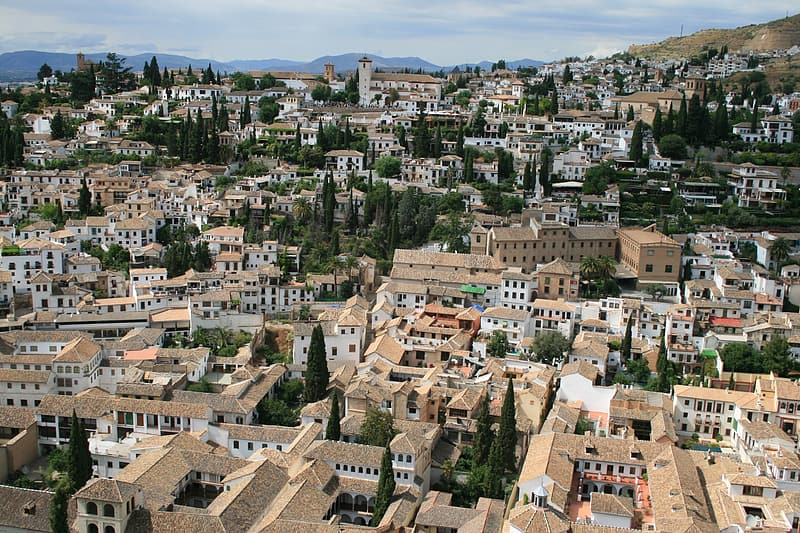
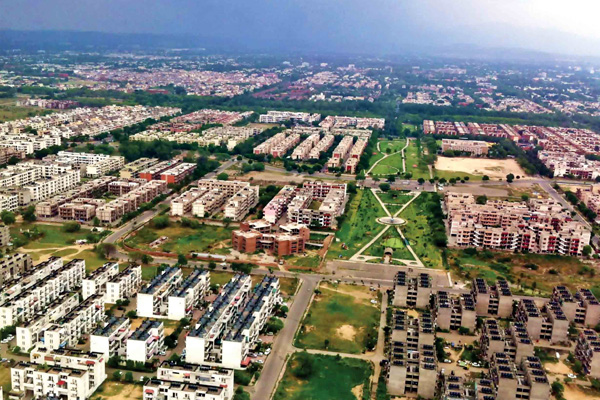
5/ So what is the structural nature that distinguishes an artificial city from a natural city?
A natural city is a semi-lattice.
An artificial city is designed like a tree.
Designers should design cities like semi-lattices.
(first: natural Waterloo, the rest: artificial cities)



A natural city is a semi-lattice.
An artificial city is designed like a tree.
Designers should design cities like semi-lattices.
(first: natural Waterloo, the rest: artificial cities)
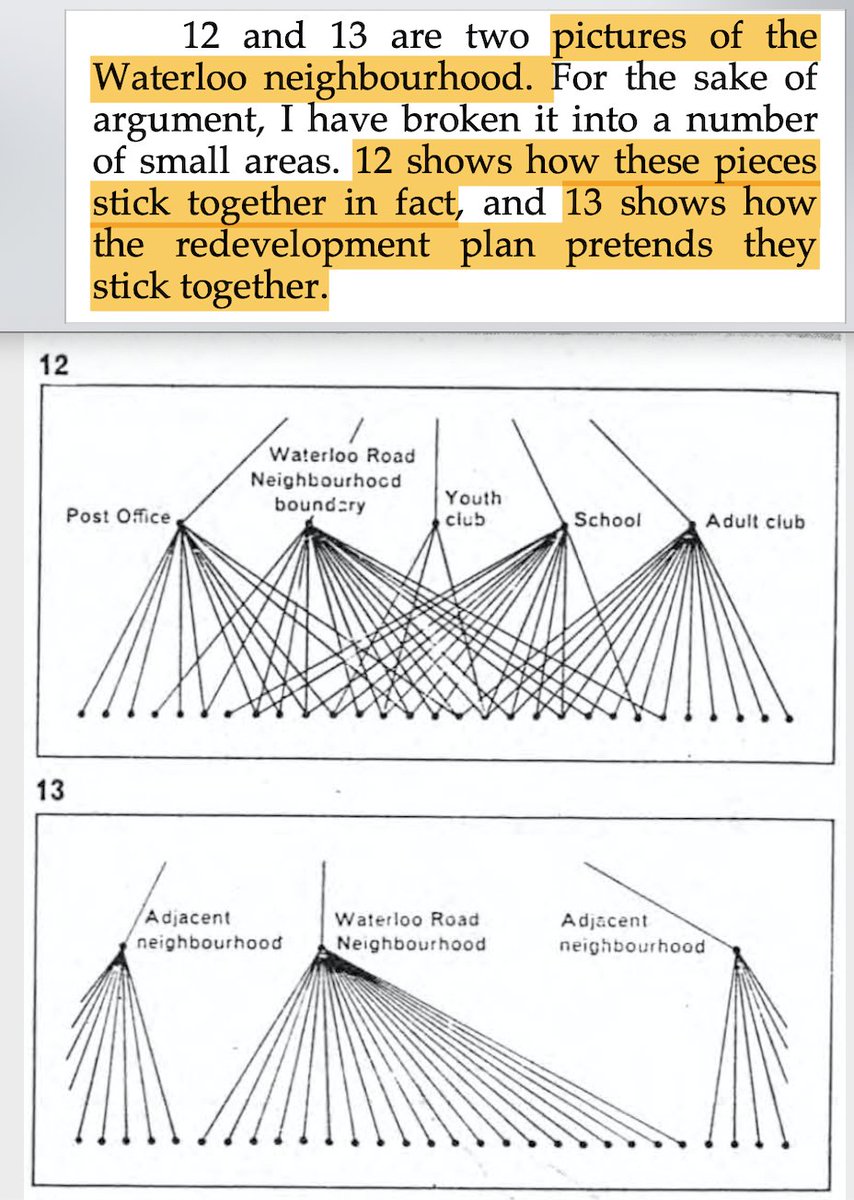
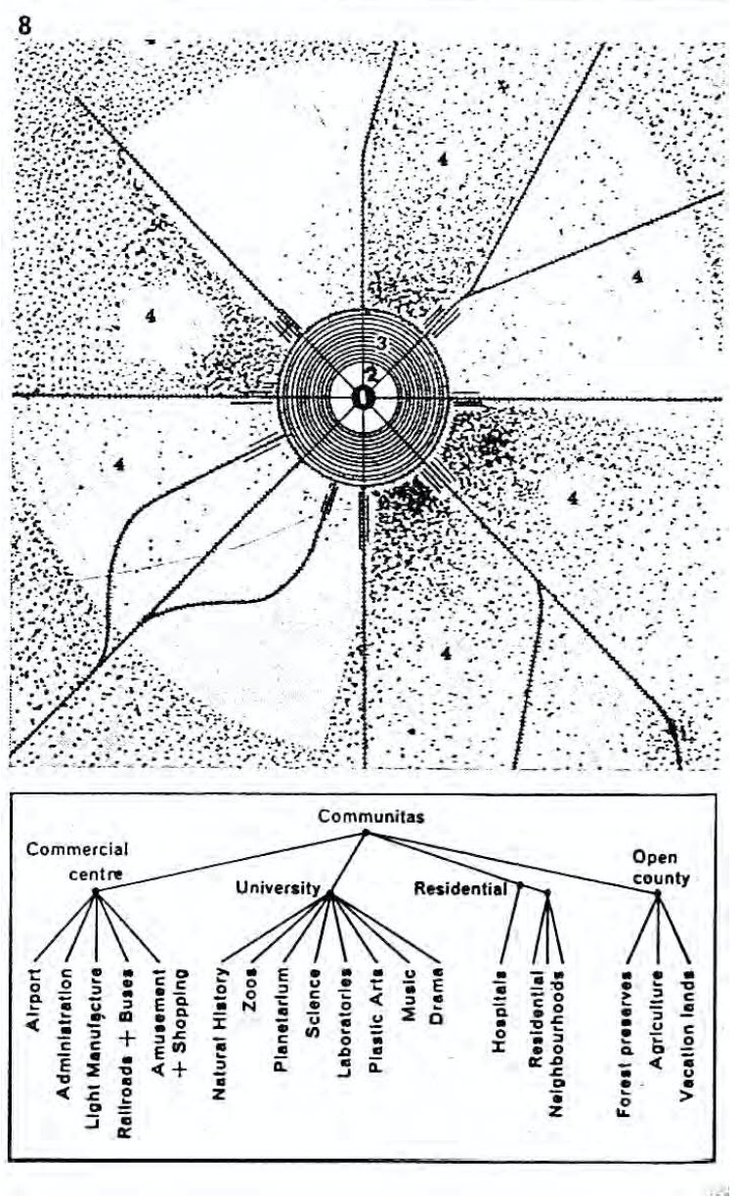

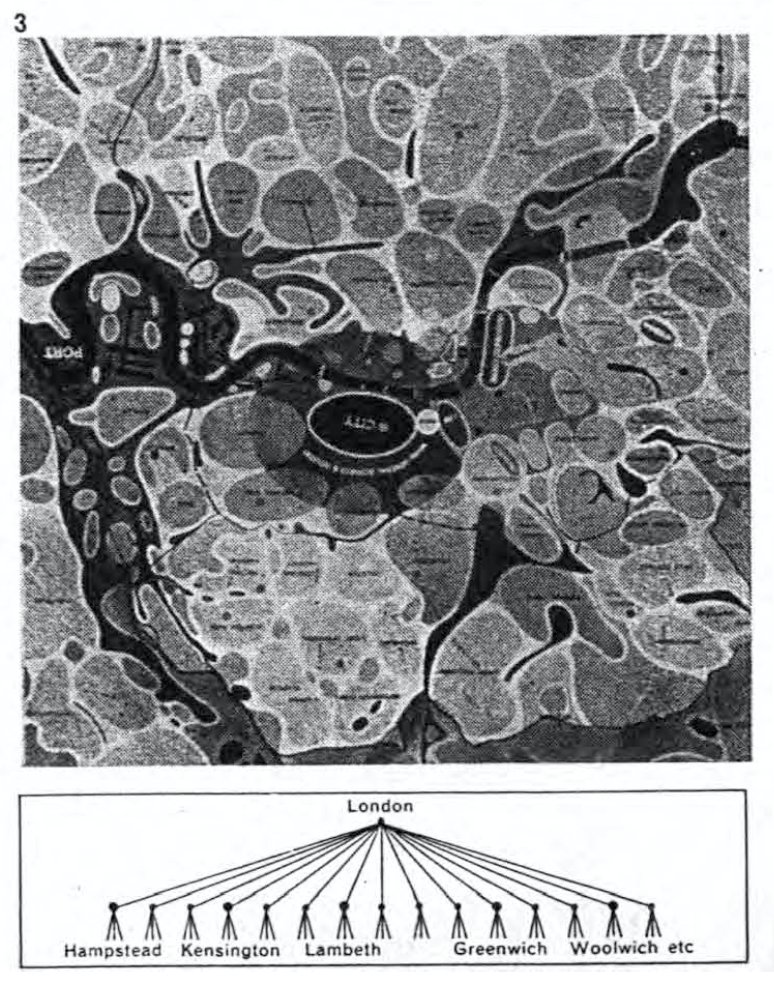
6/ What are semi-lattices and trees?
In Alexander's language:
- They're ways to structure a system.
- Systems compose of sets.
- Sets have elements.
- Elements interact.
Example on a system from original essay:
In Alexander's language:
- They're ways to structure a system.
- Systems compose of sets.
- Sets have elements.
- Elements interact.
Example on a system from original essay:
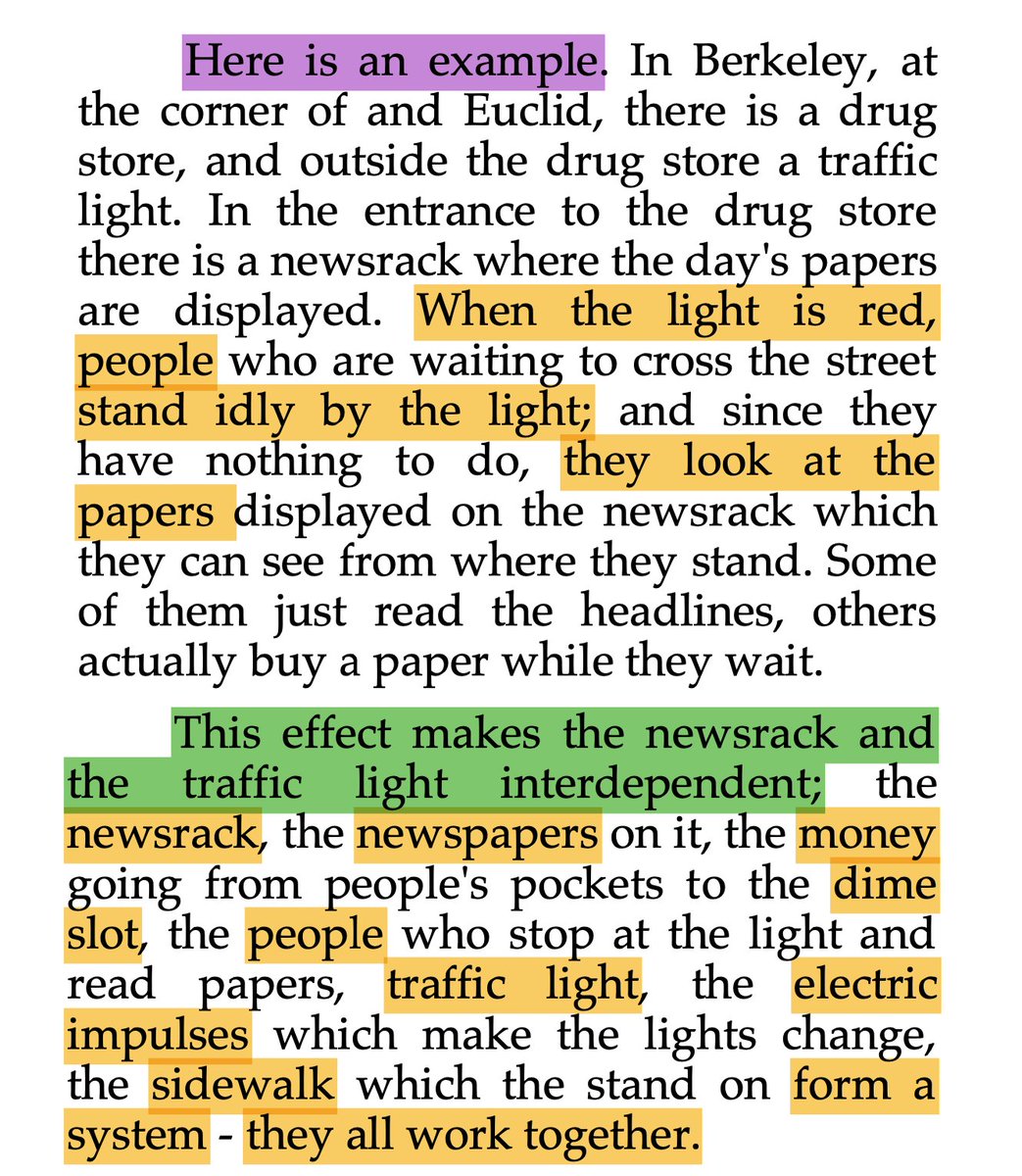
7/ Trees are simplistic. Semi-lattices can capture complexity.
In trees, there are no interaction between sub-sets.
In semi-lattices, all sub-sets can interact with each other.
I like Alexander's comparison with social networks - everyone can interact with everyone.
In trees, there are no interaction between sub-sets.
In semi-lattices, all sub-sets can interact with each other.
I like Alexander's comparison with social networks - everyone can interact with everyone.
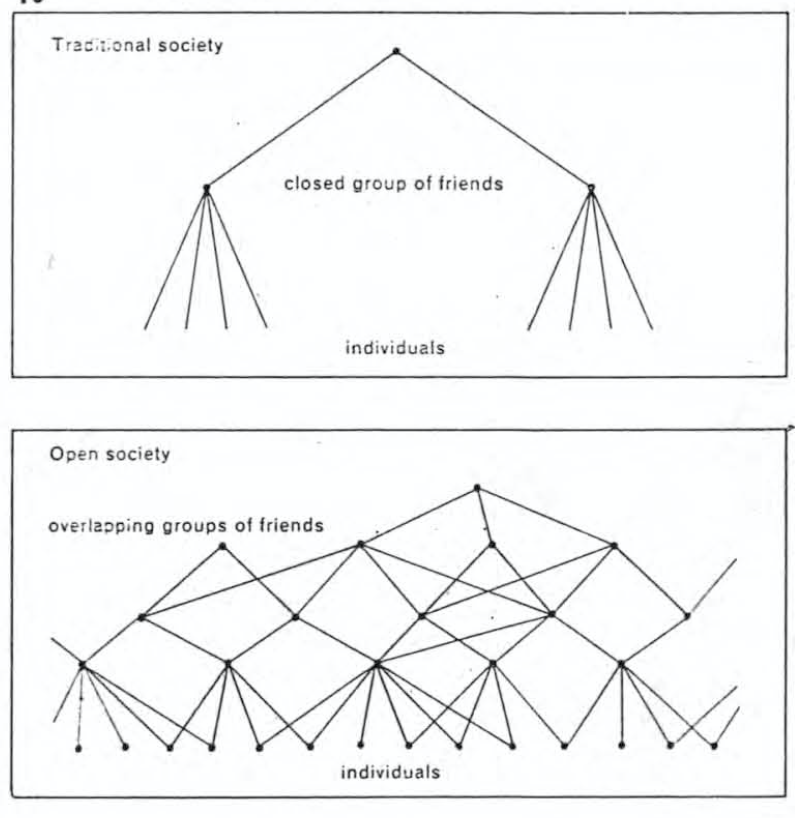
8/ A living city needs to be a semi-lattice
Take Brooklyn:
- small businesses need backyards to start (residential)
- small businesses need enterprises and customers (industry)
Brooklyn allows for this system.
A city which is a tree will not.
Take Brooklyn:
- small businesses need backyards to start (residential)
- small businesses need enterprises and customers (industry)
Brooklyn allows for this system.
A city which is a tree will not.
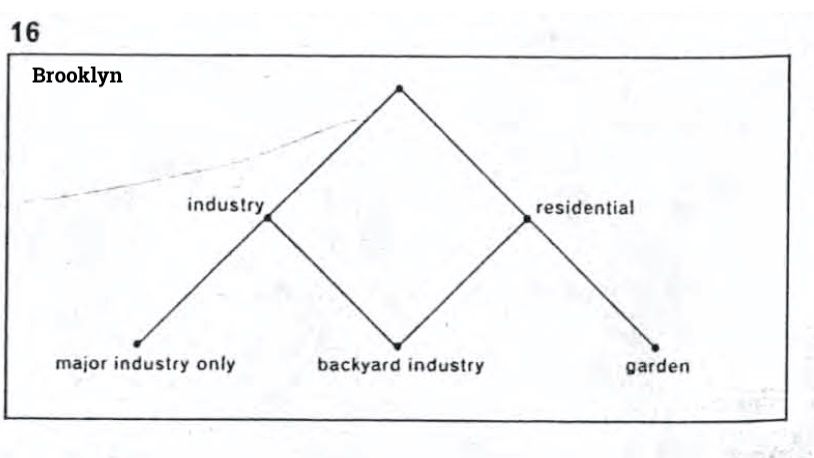
9/ Urban designers need to study the hidden systems of a city.
They are not physical.
Each city has its own systems.
Reusing old systems could make it chaotic.
More examples of natural cities — Cambridge and Manhattan:
They are not physical.
Each city has its own systems.
Reusing old systems could make it chaotic.
More examples of natural cities — Cambridge and Manhattan:
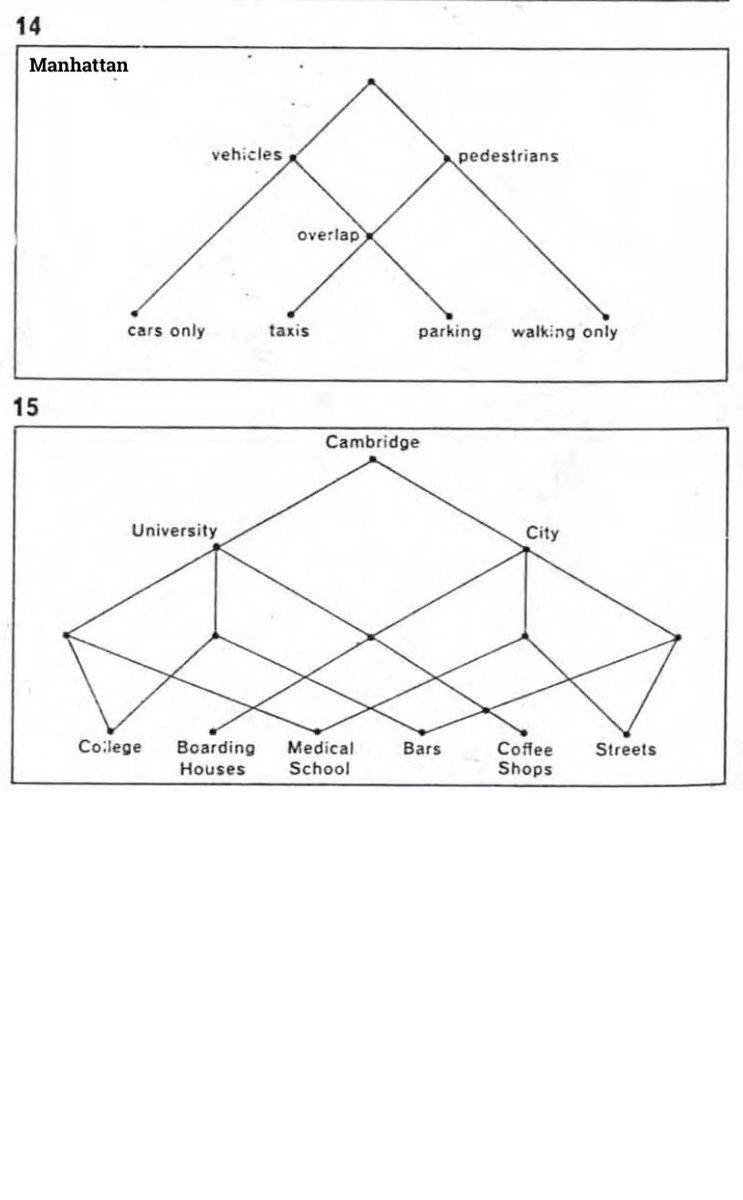
10/ So why do designers tend to think in trees?
- We limited by the way they can conceive complexity.
- We have a compulsive reaction to simplify things.
Trees are so neat and clear to construct, they require less mental effort.
Being reductionists is aligned with our wiring.
- We limited by the way they can conceive complexity.
- We have a compulsive reaction to simplify things.
Trees are so neat and clear to construct, they require less mental effort.
Being reductionists is aligned with our wiring.
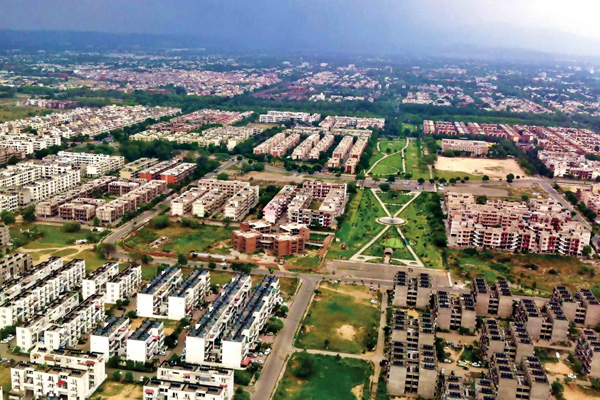
11/ There are many costs to tree-like cities.
Political, economical and social.
"When we think in terms of trees we are trading the humanity and richness of the living city for a conceptual simplicity which benefits only designers, planners, administrators and developers."
Political, economical and social.
"When we think in terms of trees we are trading the humanity and richness of the living city for a conceptual simplicity which benefits only designers, planners, administrators and developers."
12/ To solve any problem, we need to think in systems.
Christopher Alexander realized this before Complexity Sciences became a formal discipline.
Complexities are everywhere. They share many principles, patterns and properties.
Systems thinking enables us to navigate them.

Christopher Alexander realized this before Complexity Sciences became a formal discipline.
Complexities are everywhere. They share many principles, patterns and properties.
Systems thinking enables us to navigate them.
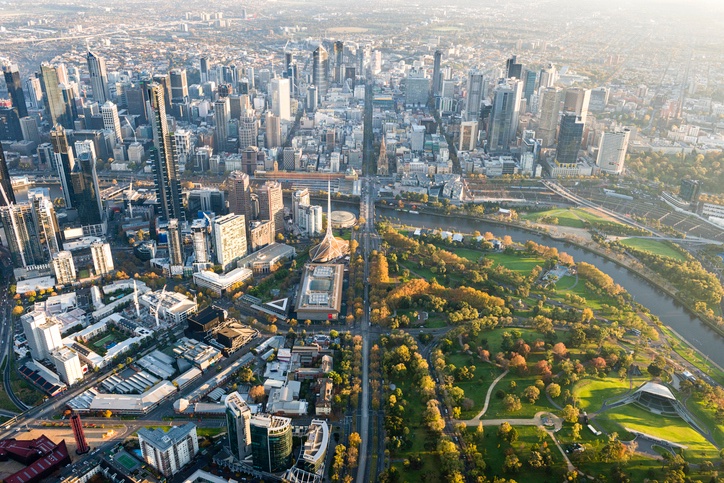
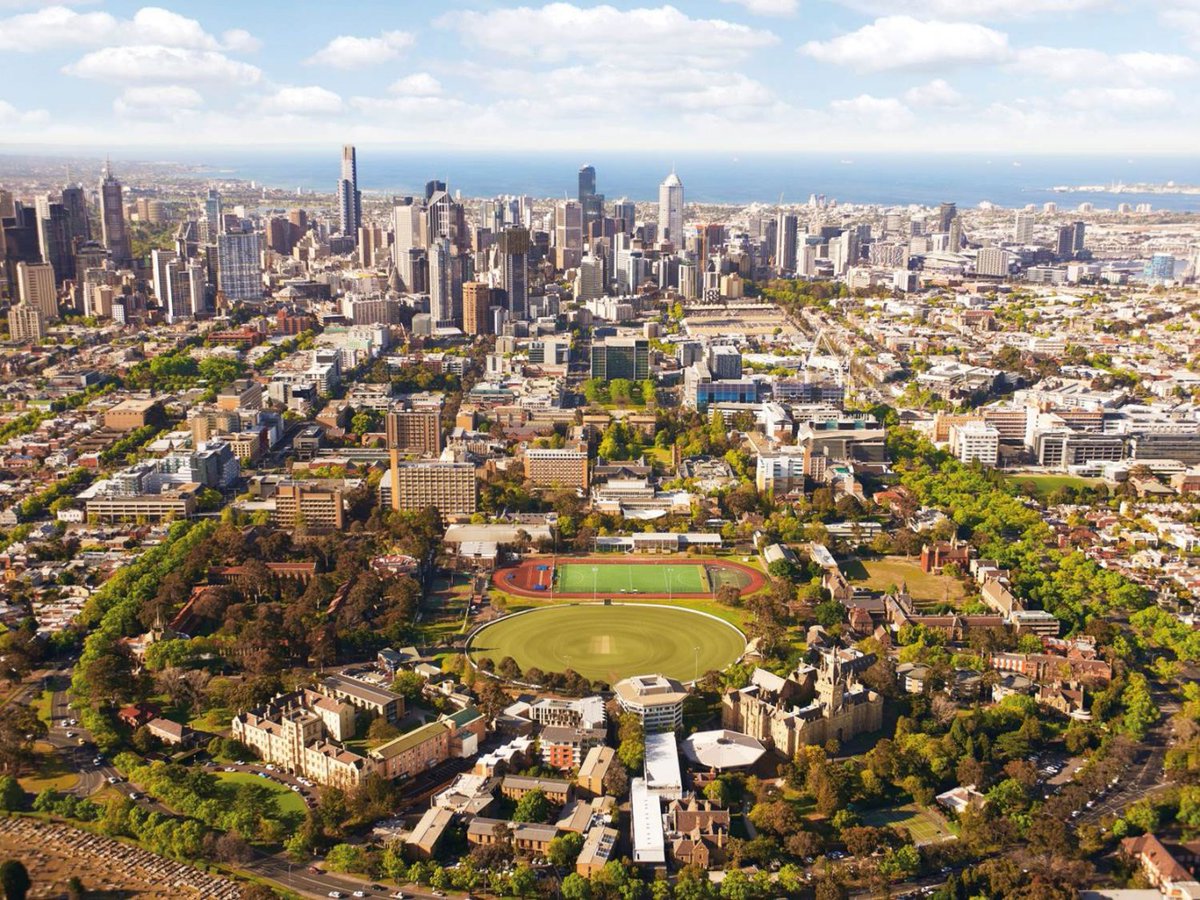
• • •
Missing some Tweet in this thread? You can try to
force a refresh


